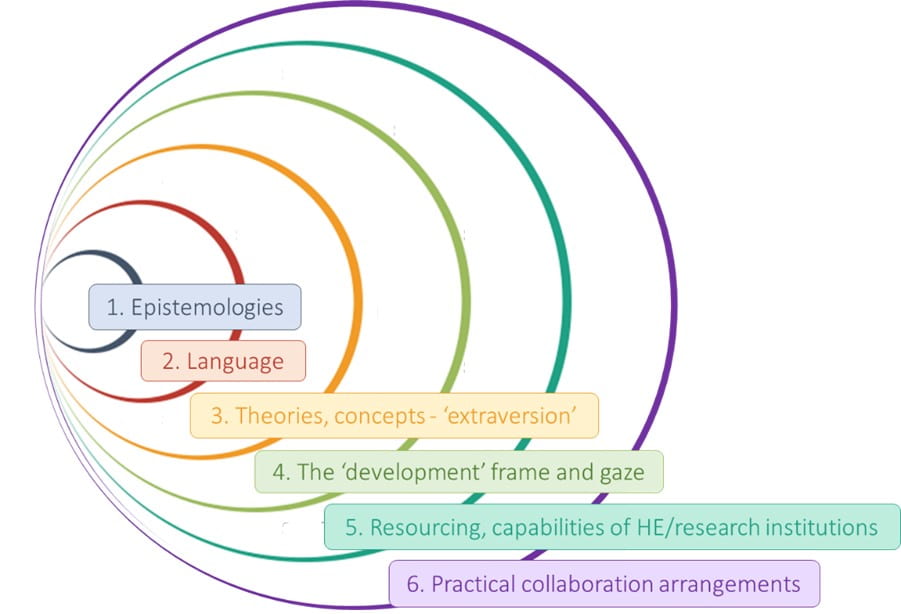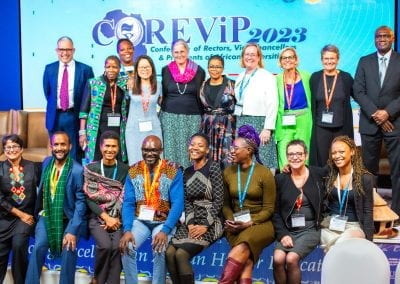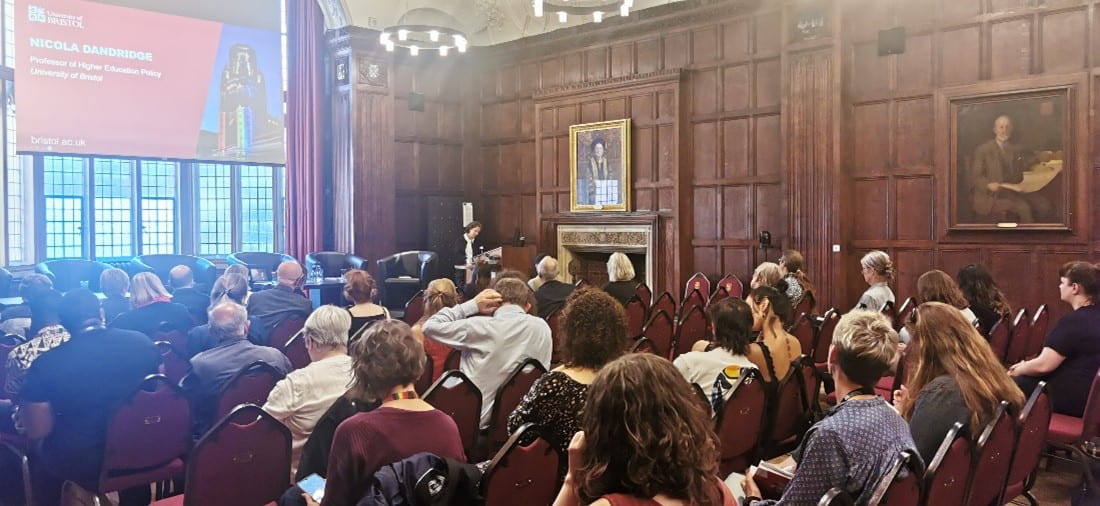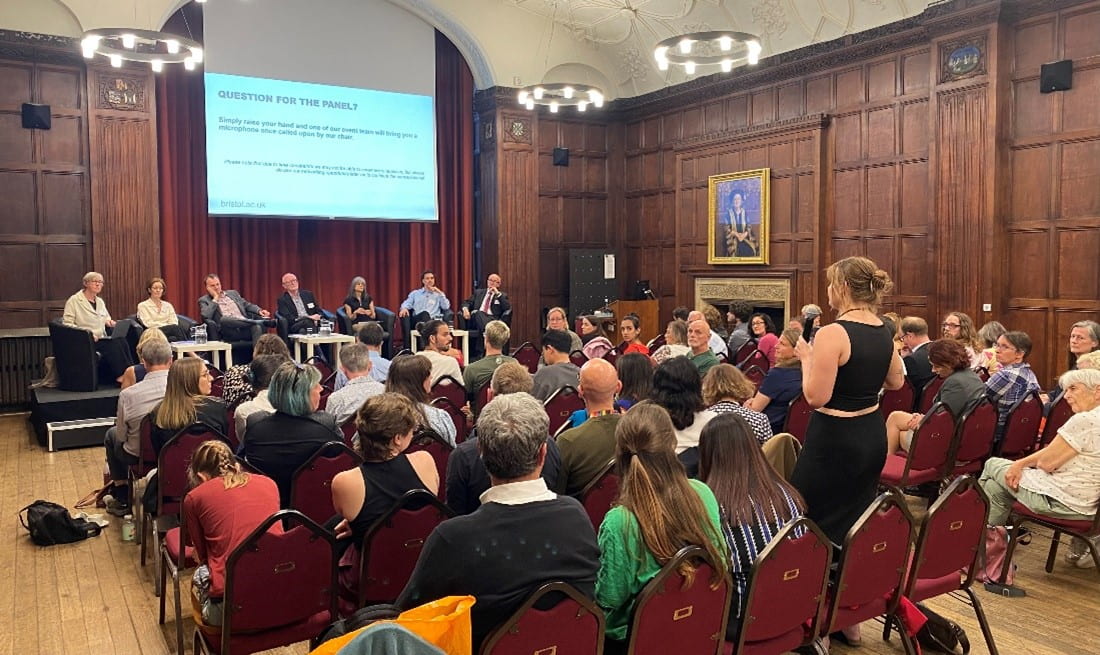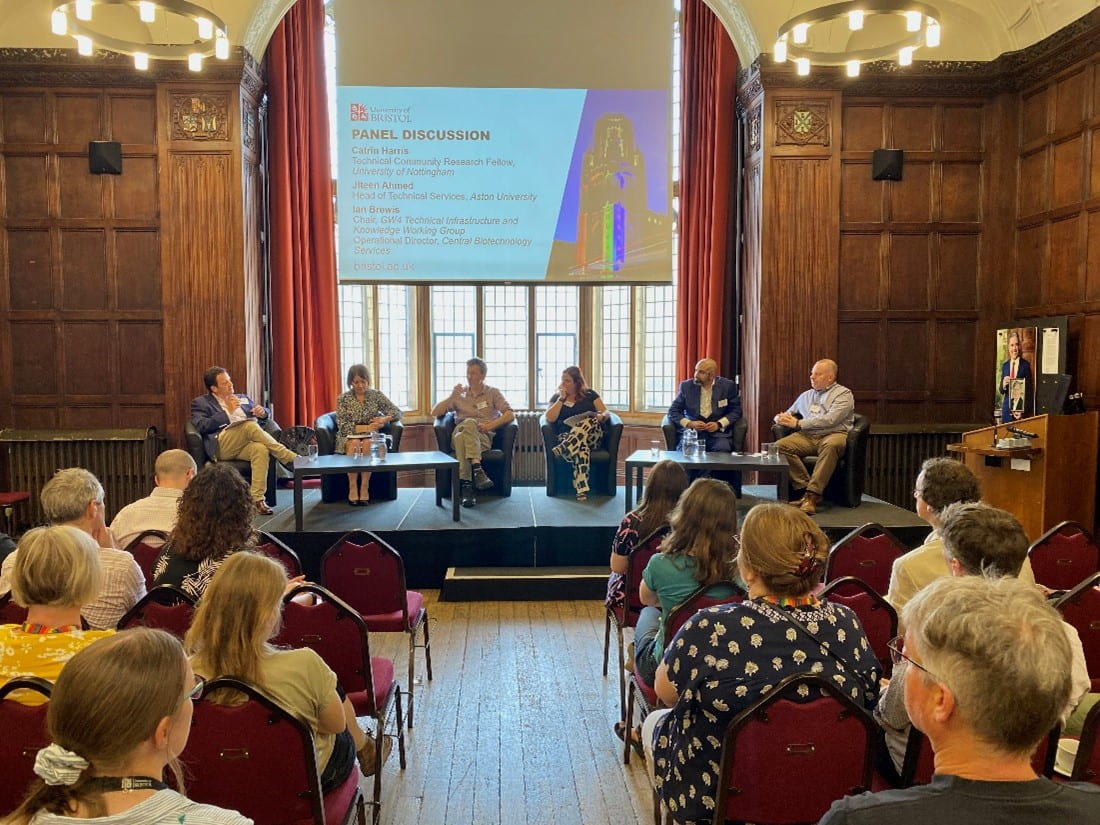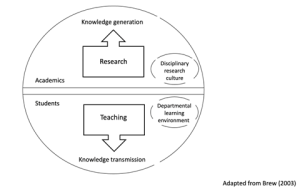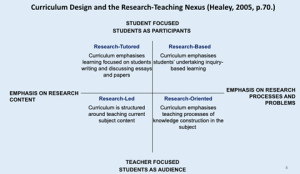Earlier this month, we had the privilege of welcoming pre-eminent academics from a range of disciplines in the field of tobacco and nicotine research for our Histories of Tobacco event. At first glance, this might not seem like a Research Culture event like our others, but research culture is about more than supporting our students, staff and academics and celebrating the fantastic work already being done. Research culture also encompasses finding ways to foster innovative, multidisciplinary research by working with each other, rather than being siloed by our School, Faculty, discipline or research group.

Tobacco and the research associated with it (both historical and present) is by its very nature a multidisciplinary field. The social history of tobacco can encompass subjects from the colonialisation of the tobacco plant from indigenous tribes in North America to the National Socialist German Workers’ Party’s ideological attacks on tobacco and alcohol. Different countries have approached tobacco legislation in vastly different ways, both currently and historically, and the roles of researchers, policy groups, government organisations and the tobacco industry have influenced our understanding of health issues and subsequent education (and re-education) campaigns and policies.
As Richard Stone outlined at our event, tobacco is also inherently linked to our institution and city. The Wills family, who contributed over £150,000 of the initial £200,000 required to raise a University Charter for Bristol, made their money through the tobacco trade. The legacy of their contribution, both positive and negative, still lives on in Bristol – as one example, people who live around the old tobacco factories that until relatively recently used to produce cigarettes use tobacco products more than the Bristol average, even though the factories are now closed.
Read on to hear from our four keynote speakers on their research across the field of tobacco, and do take a look at their published work – it makes for fascinating reading.

Patricia Nez Henderson – Vice-President, Black Hills Center for American Indian Health
Decolonizing tobacco: an indigenous perspective
Before tobacco was a globe-spanning product generating an estimated $35bn in profit per year, it was (and still is) a sacred plant for many Native American tribes. Used in healing and spiritual ceremonies, and one of the Navajo (Patricia’s own tribe) tribe’s four sacred foods, the US Government passed laws banning ceremonies and prohibiting ceremonial use of tobacco, whilst granting farming rights to colonisers to produce tobacco products and commercialise the plant.
This oppression of the indigenous culture coincided with the tobacco industry’s use of Native American imagery and wording to promote their tobacco products, and it wasn’t until 1978 that the American Indian Religious Freedom Act permitted indigenous people to practice their ceremonial ways again.
Patricia’s work is centred around decolonizing tobacco, reframing the way indigenous communities use tobacco and educating on the difference between ceremonial and commercial tobacco. After 15 years of advocacy, the Air is Life Act 2021 creates a safe space for Navajo people – prohibiting the use of commercial tobacco products on Navajo land to return to a culture of honouring tobacco as a sacred product. Much of the discourse around tobacco doesn’t speak to the culture of tobacco, focusing on commercial and health aspects. The Air is Life Act represents a positive step towards indigenous people reclaiming an aspect of Navajo culture stolen by colonial powers.
Ian Tyrrell – Emeritus Professor of History, University of New South Wales
Before the “Cigarette Century” and after: tobacco, smoking and colonialism
There is no real tradition of historiography on the study of tobacco in Australia. Studies have become fixated with cigarettes, and with the major tobacco corporations, especially chewing tobacco and roll-ups. In recent years, the focus has shifted to smokeless tobacco, and these focus areas don’t reflect the broad swathe of consumption options and varied histories of these products. Until the post-1900 rise of cigarettes, only 3.4% of tobacco products were for leaf; snuff, smoking of pipes, and chewing plug and twist tobacco were all more popular forms of consumption.
The rise of cigarettes in Australia cannot be discussed without mentioning Big Tobacco’s marketing war on chewing tobacco, a calculated move to increase their market share which rapidly increased cigarette usage. The variances in national market preferences, patterns of class differences and patterns of urbanization make for fascinating study, and hopefully research in this area continues.
George Davey Smith – Professor of Clinical Epidemiology, University of Bristol
Cigarettes and death: a long and winding road
It is easy to assume that awareness of the dangers of smoking cigarettes is a relatively recent phenomenon due to improvements in health research, technology and statistical approaches, the discovery of tobacco’s health implications and subsequent policy decisions. In reality, we should consider this a re-discovery.
In late 19th-century discourse, cigarettes were referred to as coffin nails. There was recognition that smoking had a number of health implications. At a governmental level, perhaps the most famous example of anti-tobacco policy was the National Socialist German Workers’ Party, who waged an ideological war on tobacco and alcohol consumption which included both policy and health campaigns. Military personnel were prohibited from smoking in uniforms, and the general population were prohibited from smoking in cars, indoors, and on university grounds. Tobacco capitalism is quite resistant, however! The German tobacco industry began rebranding their cigarettes for the stormtroopers of the Nazi war machine. Smoking also became a form of resistance and the counterculture in Germany, most famously in the Edelweiss Pirates, an anti-Nazi movement of working-class youth who fought the regime.
Raymond Pearl demonstrated major differences in life expectancy due to smoking, but his work did not significantly influence policy and discourse. This could be due to a myriad of factors. As a well-recognised public intellectual, he polarised views. The tobacco industry also opposed his work (and the work of others), running marketing campaigns countering Pearl’s arguments. Pearl’s controversial work on links between tuberculosis and cancer, and his findings on moderate alcohol consumption being better for life expectancy, all contributed to his work not gaining traction in social and policy discourse.
Virginia Berridge – Professor of History and Health Policy, London School of Hygiene and Tropical Medicine
E-cigarettes and the politics of harm reduction: history, evidence and policy
The initial intended aim of e-cigarettes was to remove the part of cigarettes that was harmful – providing nicotine without the tar and carcinogens found in cigarettes. Owing to how embedded cigarettes had become in British culture in the 1950s, outright bans were impossible. “Healthier” cigarettes entered the market, but compensatory smoking (requiring more cigarettes for the same nicotine hit) meant that these made a negligible difference. The policy discourse has now shifted towards harm reduction rather than outright bans, in part due to the response to HIV/AIDS and the health benefits of preventative drugs.
The arrival of e-cigarettes as a nicotine replacement to enable long-term use rather than tapering off represented the UK’s changing stance from prevention to harm reduction. Nicotine itself is not especially hazardous, and if it could be provided effectively as a cigarette substitute, millions of lives could be saved. Initially seen as an oddity, they gradually fitted into the UK regulatory system and saw increasing uptake. The nature of the UK’s political system also allowed implementation of policy at a national level compared to federalised states like the United States; with both major political parties very supportive of nicotine harm reduction, it is easier to pass policies and produce education campaigns on non-tobacco options for those dealing with nicotine addictions.
What’s next for Research Culture?
We have three more events left in our 2023 series of research culture events.
The Future of Teaching, part of our Future of Universities series, looks at the challenges and opportunities facing teaching at universities in the near future. This includes focusing equally on students and staff, the role of universities in equipping the next generation to succeed, and the nature of students as customers given the implementation and subsequent rises in tuition fees over the past 20 years.
Our final Future of Universities event, The Future Role of Universities in Society (Thursday 13 July), brings together a panel of experts across the key decision-making points of higher education policy. We’ll be discussing the role of universities in shaping the future of society and the public and political expectations of universities.
We then have our Festival of Research Culture (Wednesday 19 July), our flagship annual event, which celebrates the work across the University to improve our research culture, particularly showcasing projects that have received funding through our Enhancing Research Culture Fund. The event will give you an opportunity to discover interdisciplinary opportunities from outside your area or field of work and feed into ongoing work in this area. Hear from our Vice-Chancellor and President, Professor Evelyn Welch, about the future of our research culture, and be part of discussions on how we can continue striving to make the University of Bristol an innovative, inclusive and collaborative research environment.

